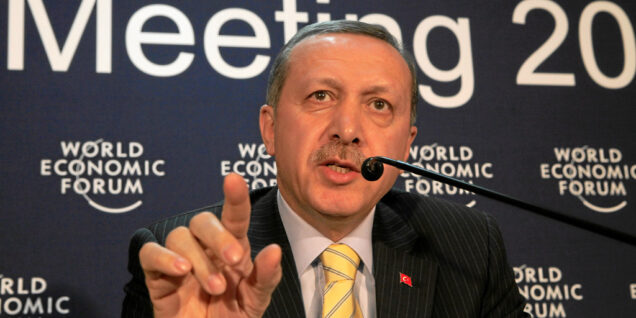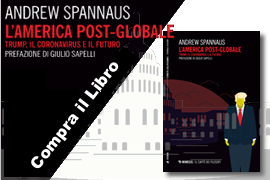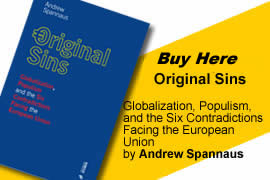The difficulty for Western media in interpreting political phenomena that do not fit into their own political-cultural worldview continues. For years, there has been an inability to understand the Trump phenomenon in the United States, as well as the success of other “populist” movements in Europe, failing to recognize the underlying socio-economic processes that often are more important the political categories applied by mainstream commentators.
This phenomenon has long manifested itself in the field of international politics as well. There is difficulty explaining why the majority of Russians support Vladimir Putin, and it is assumed that any government that does not respect democratic rights, which are considered the foundation of our Western societies, is doomed and lacks political legitimacy. The result is not only the inability to understand, but also to anticipate, future trends, thus losing the opportunity for dialogue and influence, to the extent possible.
This pattern has reemerged in recent weeks regarding Turkey. Hopes were pinned on the general elections held on May 14, hoping that President Recep Tayyip Erdogan would be defeated by his more liberal opponent, Kemal Kilicdaroglu. For many in Europe, from newspapers to politicians, it seemed like the right moment to finally move beyond a leader who has curtailed political and civil liberties during his years in power. However, in the end, in the first round Erdogan received over 49% of the votes, compared to Kilicdaroglu’s 45%, and the coalition supporting the president secured the majority of seats in parliament. In the May 28 run-off Erdogan prevailed with 52% compared to Kilicdaroglu’s 48%.
The opposition initially accused the government of irregularities, and now says that it was in general an “unfair” election, in part because the government spent considerable sums of money to improve its image with the population. Regardless, there is no doubt that the result is disappointing for those who were hoping for a clear change for Turkey, once again raising the question of why a people would vote in favor of a leader whom the democratic West considers an autocrat.
In the case of Turkey, there are several evident reasons that need to be considered. The first is related to the country’s economic and social context. Despite the recent economic challenges and the consequences of the earthquake, many Turkish citizens attribute to Erdogan the modernization of the country and the establishment of a welfare state, from public healthcare to improvements in basic infrastructure and civic order. Over the years, the president has gained enduring support from the lower-income segments of society for these reasons, which go beyond the simplified representation of autocracy versus democracy.
Foreign policy also plays an important role. Erdogan has reasserted Turkey’s central role in recent years, earning a sort of reluctant international respect, even when Ankara plays the Russian card in its relations with the West. During the election campaign, the opposition candidate was explicit in emphasizing the importance of the alliance with the West and adherence to the liberal values represented by Brussels and Washington, making reference to the supposed “Kemalism” tied to the historical legacy of Mustafa Kemal Ataturk, the founder of the modern Turkish Republic.
Even this appeal was less effective than one might have expected from a Western perspective. In fact, taking a clearly anti-Russian stance in the ongoing war poses risks for the country, such as the potential implementation of sanctions as demanded by Kilicdaroglu. Erdogan, on the contrary, reiterated his aim of working for peace, and these are not just words, considering the significant diplomatic meetings that have taken place in Turkey involving the parties to the conflict. While Europe and the United States may have no hesitation in seeking to isolate Moscow, Turkey fears economic damage and risks to its strategic position. Taking all these factors into account, one can understand why the Turkish people did not seize the opportunity to remove a leader who disregards civil rights and is seen as a thorn in the side of the West.
– Transatlantico Newsletter N. 14-2023
Subscribe to access all news items






May 29, 2023
English, Politica